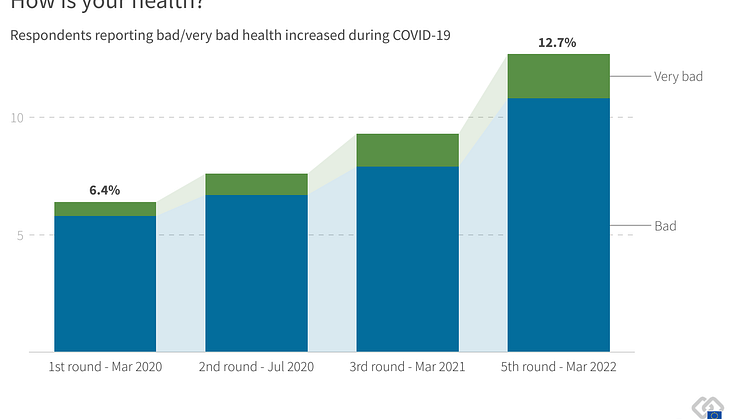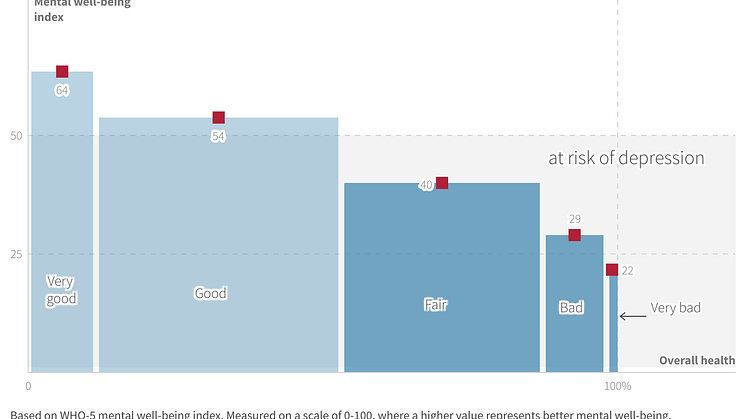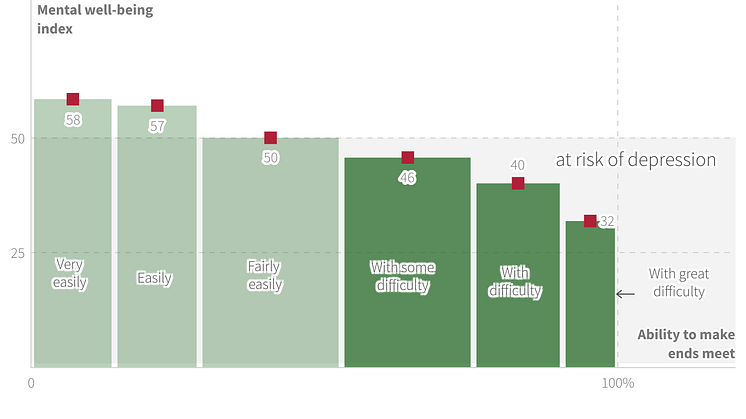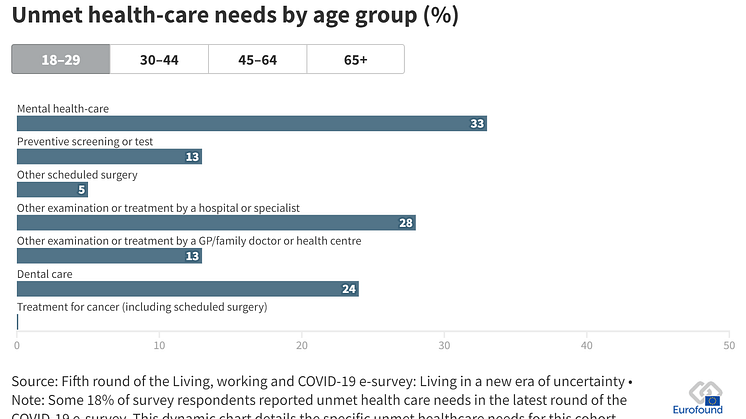
Blog post -
High risk of depression persists following COVID-19 pandemic: Data behind the mental health crisis
Lower levels of health, increasing financial pressure and a significant degree of unmet healthcare: these are the findings of the fifth round of the Living, working and COVID-19 e-survey: Living in a new era of uncertainty – a report that presents an overview of responses from over 200,000 people across all five rounds of the e-survey, which took place from spring 2020 to spring 2022.
In this data story, we use the e-survey data to take a closer look at the impact of the pandemic on mental health.
Health getting worse
The number of people reporting ‘bad’ or ‘very bad’ health more than doubled between 2020 and 2022. Despite the lifting of most lockdown measures in early 2022 as the pandemic subsided, the number of people reporting ‘bad’ or ‘very bad’ health continued to increase, from 7.9% in March 2021 to 12.7% in March 2022.
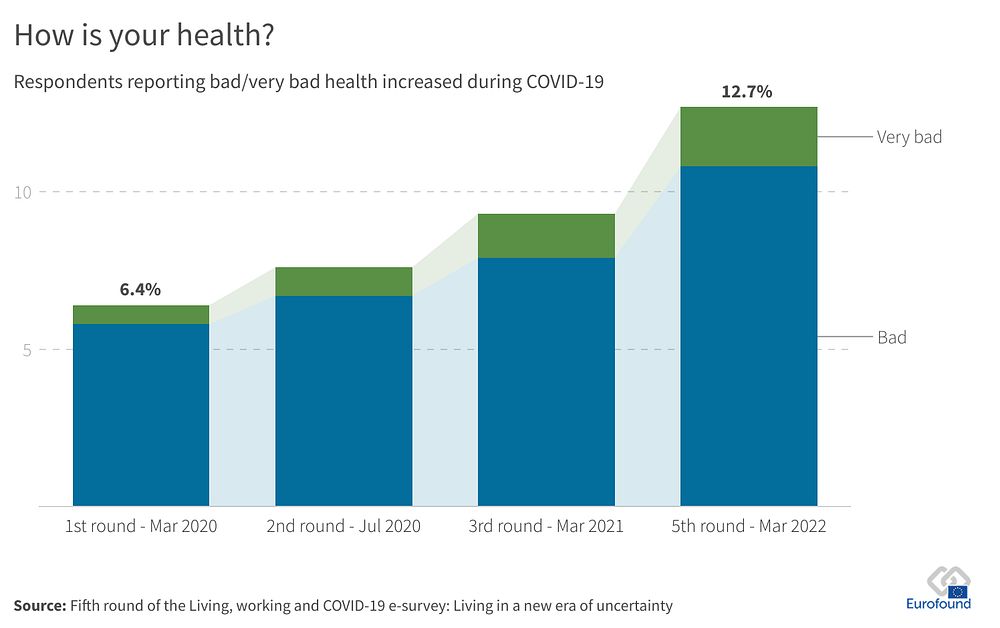
Higher risk of depression among respondents reporting bad health
There is a higher risk of depression among people who report their health as being ‘bad’ or ‘very bad’.
Here we see the relation between e-survey respondents’ reported health level and their mental well-being. A respondent scoring below 50 is considered to be at risk of depression.
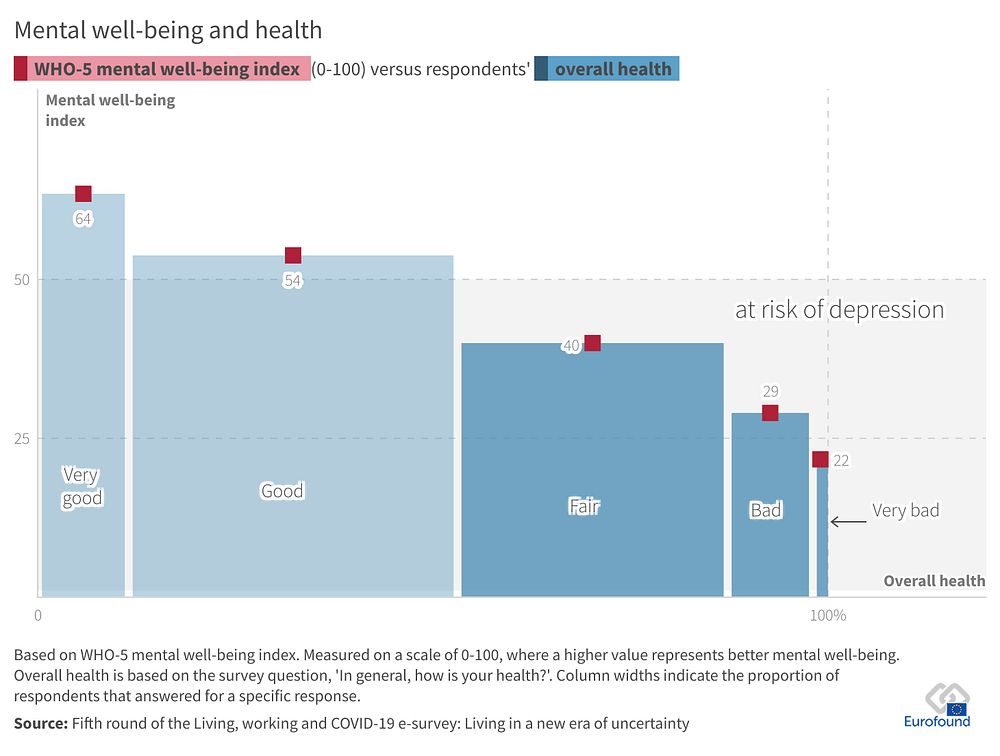
In March 2022, the average level of mental well-being in the EU was 47 – a slight improvement on the level recorded in 2021 (45), but still below the level measured at the start of the pandemic (49).
The pandemic and its related restriction measures have been associated with a decline in mental well-being, particularly for young people.
Even though most EU countries had lifted their COVID-19 restrictions by spring 2022, mental well-being has not recovered to the level that might have been expected, according to the latest round of the e-survey.
Mental well-being and making ends meet
With the cost of living in the EU rising at an unprecedented level – inflation rates spiking due to soaring energy prices – the impact on mental health, including risk of depression, may increase.
The chart below highlights the correlation between respondents’ reported ability to make ends meet and mental well-being.
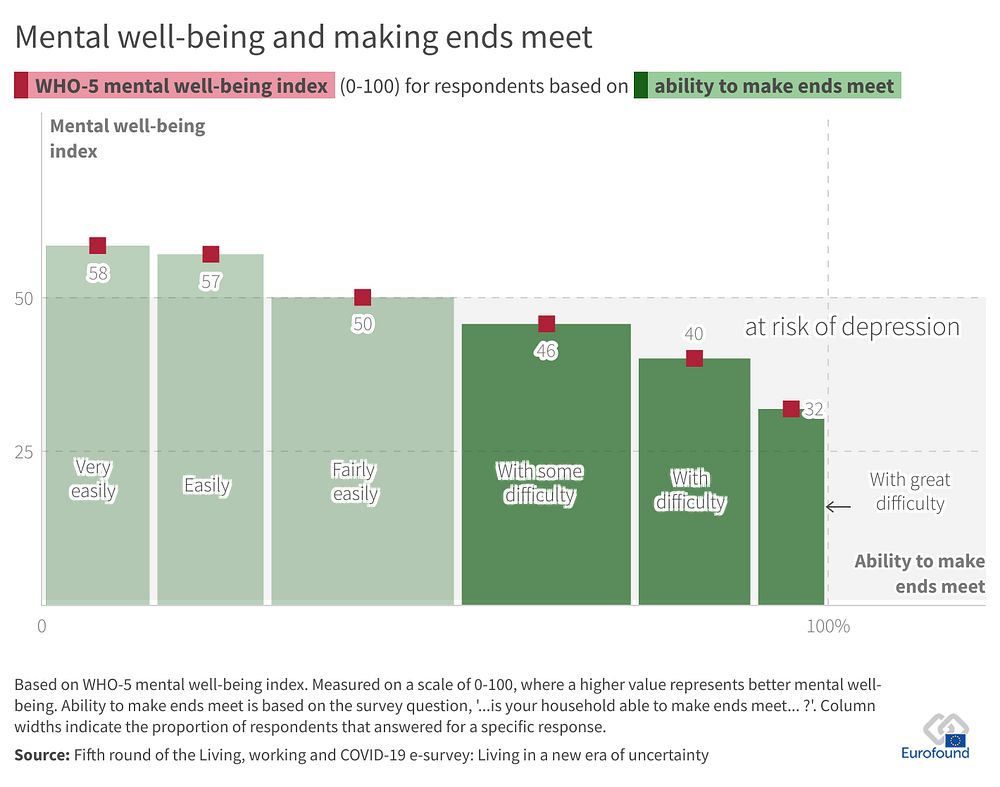
The e-survey revealed that more people are struggling to make ends meet and are at greater risk of energy poverty.
While many respondents expressed concern about their ability to pay utility bills in the next three months (28%), this worry was greatest among those who experienced difficulty making ends meet (45%), and worse still for those financially vulnerable households who are already in arrears (74%).
A high degree of concern mixed with uncertainty about the future could continue to have a negative impact on mental health.
Unmet healthcare needs
Unmet healthcare needs have increased across the EU, affecting almost one in five respondents (18%). The backlog in care is highest for hospital and specialist care with unmet mental healthcare.
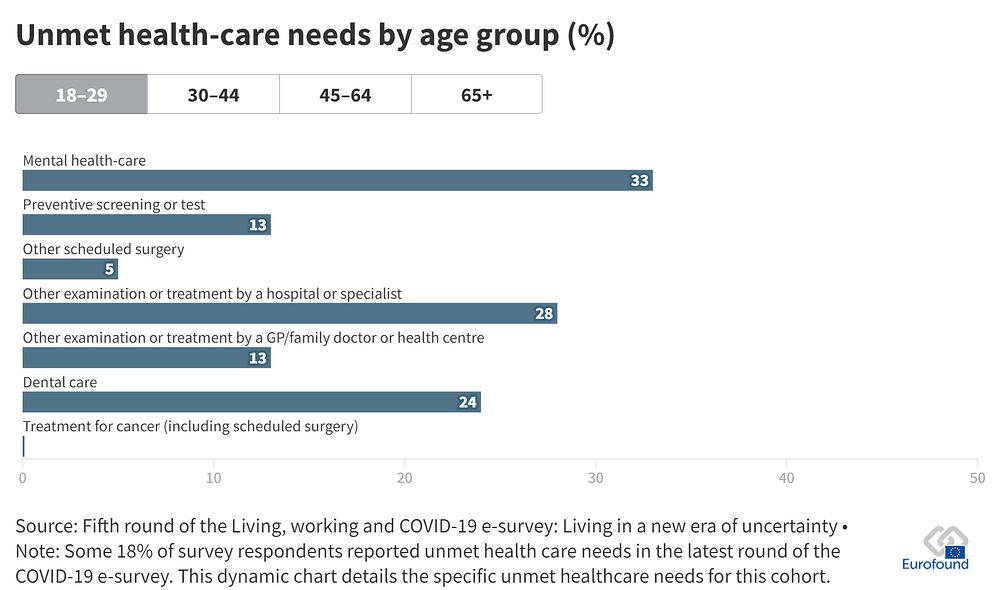
While the issue of unmet healthcare needs among younger people has decreased somewhat (62% in 2021, 49% in 2022), there are worrying signs that younger women are more at risk, with almost 1 in 4 reporting unmet needs (up from 1 in 5 in 2021).
Conclusion
With the re-opening of society, many hoped that mental well-being would improve; however, in spring 2022, the risk of depression remains worryingly high for many people.
Another new reality caused by the pandemic is the widespread backlog in healthcare provision, particularly with regards to hospital and specialist care. Clearly, health systems need support to cope with the high levels of mental healthcare problems, as the e-survey points to an increase in unmet mental healthcare. Thankfully, the alarmingly high number of respondents in the youngest age group (18-24) who reported unmet healthcare needs in 2021 (62%) has fallen somewhat in 2022 (49%).
Background
The fifth round of Eurofound's e-survey, fielded from 25 March to 2 May 2022, sheds light on the social and economic situation of people across Europe two years after COVID-19 was first detected on the European continent. It also explores the reality of living in a new era of uncertainty caused by the war in Ukraine, inflation and rising energy prices.
The findings of the e-survey reveal the heavy toll of the pandemic, with respondents reporting lower trust in institutions than at the start of the pandemic, poorer mental well-being, a rise in the level of unmet healthcare needs and an increase in the number of households experiencing energy poverty.


